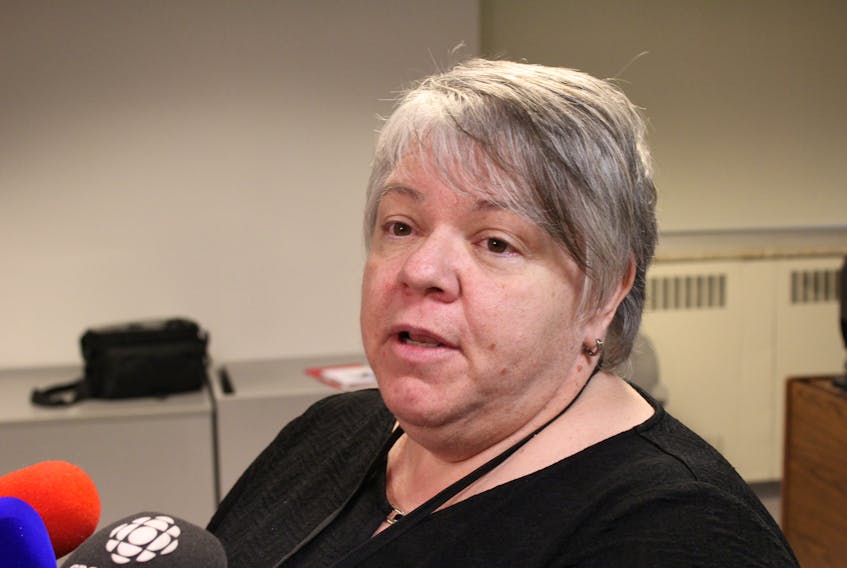Victims of family violence will be given a chance to return their lives to normal, after the introduction of family leave by the provincial government.
Then-minister responsible for the Status of Women Siobhan Coady and then-Advanced Education, Skills, and Labour Minister Al Hawkins made the announcement on Thursday afternoon.

Amendments to the Labour Standards Act will allow victims of family violence up to ten days leave from work — three paid, and seven unpaid — to allow the chance to seek medical attention, attend counseling, or find a new home.
Three other jurisdictions in Canada — Manitoba, Ontario, and New Brunswick — offer five days paid and five days unpaid leave, while other provinces offer ten days of just unpaid leave. Hawkins says government will review how the changes unfold and adjust as needed.
“We tried to strike a balance between the employee and employer,” he said.
“We feel whether three is the right number, at least right now we’re providing the opportunity to give them time to adjust.”
The changes will come into effect on Jan. 1, once the amendments make it through the House of Assembly.
Jenny Wright, executive director of the St. John’s Status of Women’s Council, says she’s encouraged by the changes.
“Legislation like this saves lives,” wrote Wright, in a statement.
“Family Violence Leave sends a strong message to workplaces that domestic violence is devastating. It enables employers to take action and it supports a change in attitudes and expectations essential for ending domestic violence altogether.”
In 2016, there were 1,251 incidents of family violence reported to police in Newfoundland and Labrador. However, it’s estimated that only ten per cent of such incidents are actually reported to police.
On a national scale, family violence costs the country around $7.4 billion a year, between people skipping work to deal with the situation, strains on the healthcare system, and the costs of the justice system.

It’s estimated the cost to employers from lost productivity on a national scale is about $77.8 million.
Mary Shortall of the Newfoundland and Labrador Federation of Labour worked closely with government in developing the amendments. She says the changes are a good first step.
“Frankly, we would have liked to see more than three days paid,” she said.
“But at this stage, we’ll see how that works. I think the employers need to see that the sky won’t fall, that it’s the right things to do.”
In order to take the leave, a person must prove they’re seeking help, either through a doctor’s note, a police report, or other documentation relating to the transition. Employers will be required – as with any leave – to keep documentation and the reason for leave confidential.
Richard Alexander of the Newfoundland and Labrador Employers Council says the private sector already has some mechanisms in place to support victims of domestic violence, but Thursday’s move is a good one.
“The employer community, unfortunately, has experience assisting employees in dealing with domestic violence,” wrote Alexander, in a statement.
“Many employers currently already provide unrestricted paid leave days for personal use and supports, such as Employee Assistance Programs (EAP), that provide anonymous support to employees in times of crisis, including victims of domestic violence.”
Michelle Green, executive director of the Iris Kirby House, said, “You have to start somewhere.”
“We have seen that people have lost their jobs because they had to leave. It’s great to have a couple of days off, but if you have no money and you’re not at work, there’s still many barriers that people are experiencing — childcare being one of them.”
That said, Green says there’s a long way left to go.
“I wouldn’t want people to think that is where the situation stops. We have some situations which would have been absolutely cured by having those three days, but it’s just the first step to ensure women who are still working can still find work after.”
Twitter: DavidMaherNL









